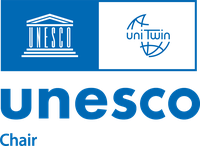Pro-poor value chains seek to integrate smallholding farmers into high value markets in ways that improve income and alleviate food insecurity. As this market-oriented development approach gains prominence, research must investigate how value chains interact with local places and the livelihoods of the people who live there. Through a case study of one community in the Peruvian central highlands and the native potato value chains implemented there, this study explores the horizontal dynamics among community livelihoods and vertical dynamics among value chain actors. Based in Actor-oriented Perspectives (AP) theory, this study posits that development is (re)constructed by the actors participating. Though a mixed methods approach, this study investigated the experiences that households have had since a national NGO implemented native potato value chains with (trans)national corporations. During five months of fieldwork, 149 of 152 households (98%) were surveyed and 36 interviews were conducted among community members, NGO coordinators, and company executives. Multivariate regression and thematic analysis explored specific livelihood components of community members: dietary quality, project participation, on-farm diversification, livelihood activity diversification, social interaction, and demographics. Analysis also considered the native potato value chains and how the livelihood decisions of community members influence their structure and function.
![]() tobin Dissertation Final.pdf
— 3.0 MB
tobin Dissertation Final.pdf
— 3.0 MB





